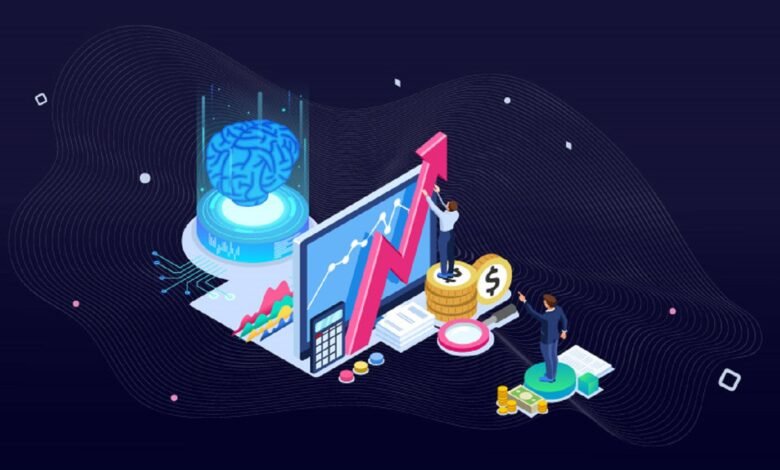The potential for data analytics to drive social impact and address complex societal challenges, such as inequality and poverty.

Introduction:
In an era marked by unprecedented technological advancements, data analytics emerges as a powerful tool for addressing complex societal challenges and driving positive social impact. This essay explores the transformative potential of data analytics in tackling issues such as inequality and poverty, highlighting the importance of acquiring skills through a data analytics course to leverage data-driven insights for social good.
Understanding Data Analytics:
Data analytics encompasses the process of examining vast datasets to uncover meaningful patterns, trends, and insights that inform decision-making. By harnessing the power of statistical analysis, machine learning algorithms, and visualization techniques, data analysts can extract actionable intelligence from raw data, driving informed decision-making across various domains.
The Role of Data Analytics in Addressing Societal Challenges:
Inequality and poverty represent multifaceted challenges that require comprehensive solutions grounded in evidence-based approaches. Data analytics offers a unique opportunity to understand the underlying causes and dynamics of these issues, enabling policymakers, nonprofits, and social enterprises to develop targeted interventions and allocate resources effectively.
Identifying Vulnerable Populations:
One of the key applications of data analytics in addressing inequality and poverty is the identification of vulnerable populations. By analyzing demographic data, socioeconomic indicators, and geographical patterns, analysts can pinpoint communities and individuals at risk of marginalization or exclusion. This targeted approach facilitates the delivery of tailored services and interventions aimed at addressing specific needs and reducing disparities.
Optimizing Resource Allocation:
Data analytics plays a crucial role in optimizing resource allocation by identifying areas with the greatest need and potential impact. Through predictive modeling and optimization algorithms, analysts can prioritize investments in education, healthcare, infrastructure, and social welfare programs, ensuring that limited resources are allocated efficiently to maximize social benefit.
Informing Policy Decisions:
Evidence-based policymaking lies at the heart of effective governance and social development. Data analytics equips policymakers with timely and accurate insights into the effectiveness of existing policies and the anticipated outcomes of proposed interventions. By leveraging data-driven evidence, policymakers can design policies that are responsive to the needs of marginalized communities, promote inclusive growth, and address systemic barriers to social mobility.
Monitoring and Evaluation:
Data analytics enables continuous monitoring and evaluation of social programs and initiatives, allowing stakeholders to assess their impact, identify areas for improvement, and make data-driven adjustments in real-time. By establishing robust monitoring frameworks and leveraging data analytics tools, organizations can measure the effectiveness of interventions, track progress towards predefined goals, and ensure accountability and transparency in resource allocation.
Case Studies:
Several real-world examples illustrate the transformative impact of data analytics in addressing societal challenges. For instance, organizations like the World Bank and the United Nations leverage data analytics to track global poverty trends, monitor progress towards Sustainable Development Goals (SDGs), and inform international development policies. Closer to home, initiatives such as India’s National Rural Employment Guarantee Act (NREGA) leverage data analytics to ensure timely payment of wages, prevent leakages, and enhance transparency in public welfare schemes.
Empowering Communities Through Data Literacy:
In addition to leveraging data analytics at the organizational and policymaking levels, empowering communities with data literacy skills is essential for fostering citizen engagement, accountability, and empowerment. Data analytics courses offer individuals the opportunity to acquire practical skills in data analysis, visualization, and interpretation, enabling them to participate actively in the decision-making process, advocate for their rights, and hold institutions accountable for equitable service delivery.
Challenges and Considerations:
While data analytics holds immense promise for driving social impact, several challenges must be addressed to realize its full potential. These include issues related to data privacy and security, digital divide, algorithmic bias, and ethical considerations surrounding the use of data in decision-making. Data analytics courses play a vital role in educating aspiring data analysts about these ethical and legal considerations, equipping them with the knowledge and skills to navigate complex ethical dilemmas responsibly.
Enhancing Public Health Interventions:
Data analytics plays a crucial role in public health by analyzing healthcare data to identify disease trends, assess the effectiveness of interventions, and predict outbreaks. By leveraging techniques such as predictive modeling and epidemiological analysis, public health agencies can allocate resources strategically, implement targeted interventions, and mitigate the spread of infectious diseases. Data analytics courses equip healthcare professionals with the skills to analyze healthcare data effectively, enabling them to contribute to disease surveillance efforts, improve healthcare delivery, and save lives.
Promoting Financial Inclusion and Economic Empowerment:
Access to financial services is essential for economic empowerment and poverty reduction. Data analytics can facilitate financial inclusion by analyzing transactional data, credit histories, and socioeconomic indicators to assess creditworthiness and tailor financial products to the needs of underserved populations. By leveraging alternative data sources such as mobile phone usage and social media behavior, financial institutions can reach unbanked individuals and provide them with access to formal financial services. Data analytics courses offer training in fintech and financial analytics, empowering professionals to drive inclusive economic growth and promote financial literacy among marginalized communities.
Addressing Environmental Challenges:
Data analytics plays a crucial role in addressing environmental challenges such as climate change, natural disasters, and resource depletion. By analyzing environmental data from satellite imagery, weather sensors, and ecological models, researchers can monitor changes in ecosystems, predict environmental hazards, and develop strategies for mitigating environmental risks. Data analytics courses offer specialized training in environmental analytics and geospatial analysis, enabling professionals to contribute to sustainable development initiatives, conservation efforts, and climate resilience strategies.
Empowering Education and Skill Development:
Data analytics can revolutionize education by analyzing student performance data, learning outcomes, and engagement metrics to personalize learning experiences, identify at-risk students, and improve educational outcomes. By leveraging adaptive learning platforms and learning analytics tools, educators can tailor instructional content to individual learning styles, provide targeted interventions to struggling students, and optimize educational resources. Data analytics courses offer training in educational data mining and learning analytics, empowering educators to harness the power of data to enhance teaching and learning processes, bridge learning gaps, and foster lifelong learning.
Catalyzing Social Innovation and Entrepreneurship:
Data analytics serves as a catalyst for social innovation and entrepreneurship by identifying unmet needs, market opportunities, and emerging trends in underserved communities. By analyzing market data, consumer behavior, and social media trends, entrepreneurs can develop innovative products and services that address pressing social challenges, create economic opportunities, and drive sustainable development. Data analytics courses foster an entrepreneurial mindset and provide aspiring entrepreneurs with the skills to identify market gaps, validate business ideas, and leverage data-driven insights to build successful ventures that create positive social impact.
Conclusion:
In conclusion, data analytics represents a powerful tool for addressing complex societal challenges such as inequality and poverty. By harnessing the transformative potential of data analytics, policymakers, nonprofits, and social enterprises can develop evidence-based interventions, optimize resource allocation, and monitor progress towards predefined goals. Through initiatives such as data analytics courses in Delhi, Noida, Gurgaon and other cities in India individuals can acquire the skills and knowledge needed to leverage data-driven insights for social good, empowering communities, and driving positive change in society. As we embrace the opportunities offered by data analytics, it is essential to remain mindful of ethical considerations and ensure that data-driven interventions prioritize inclusivity, transparency, and social justice.



